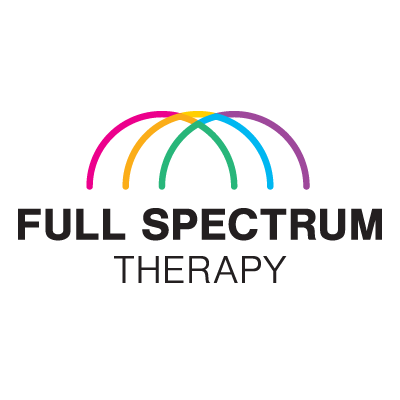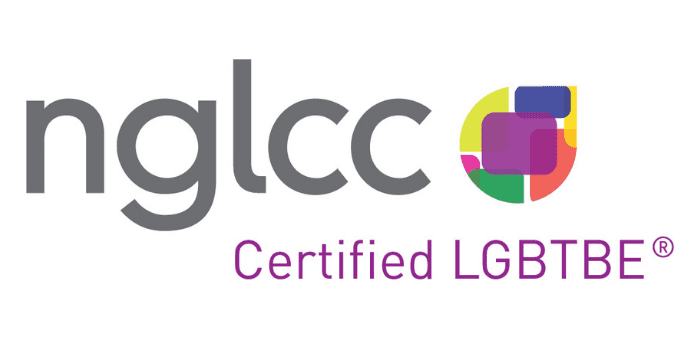Setting healthy boundaries is a struggle for many different kinds of people, but for queers, learning how to set healthy boundaries can sometimes feel like training for an olympic event.
There’s a few reasons boundary setting can feel particularly difficult for folks in the LGBTQ+ community.
We have to set more boundaries in more settings than heteros and cis people.
Many of the boundaries we need or want to set are about deeply personal and emotional topics (who we are, who we love)
Society teaches us to not trust ourselves, our perceptions, and our feelings.
It’s often less safe for us to affirm our boundaries in many public and private settings.
Many of us feel isolated and worry that boundary setting will contribute to further isolation.
We may find ourselves in abusive relationships where it’s not safe to assert our boundaries.
If that sounds like a recipe for boundary chaos—it is!
Struggling with boundaries is a very common experience for LGBTQ+ folks, so if you’ve noticed that it’s hard for you to set limits and say no in your relationships, you’re not alone.
Read on for the top 4 boundary struggles we run into with LGBTQ+ clients at Full Spectrum Therapy. Maybe you’ll resonate with some of them, or maybe your boundary struggles are totally unique.
These certainly aren’t the only boundary struggles that queer folks deal with—far from it—but they are definitely among the most common ones we’ve been hearing about lately.
LGBTQ+ Boundary Struggle #1: You find it hard to discern what your boundaries even are
This is one of the biggest issues we hear again and again.
You sit down to decide what your boundaries are and…. nothing happens.
You just don’t know.
And you’re not sure how to figure it out.
This often happens when you feel disconnected from yourself, your body, your feelings, and/or your “gut.”
There’s so many reasons you can feel this way, but for LGBTQ+ folks, one of the major contributing factors is life-long exposure to homophobia and/or transphobia and all crappy experiences that can go along with it.
In these situations, it can feel more “natural” to tune into the other people around you and take your cue on what’s appropriate from them.
This tends to work out pretty poorly because no one but you can decide what’s appropriate for you.
LGBTQ+ Boundary Struggle #2: You don’t want boundaries to contribute to your (or someone else’s) sense of isolation
Many queers deal with feelings of loneliness and isolation.
Whether you’re cut off from family or you just don’t feel comfortable with your straight coworkers, it’s very common to feel that your social circle and your support network is lacking.
The LGBTQ+ community, even in a place like Portland, OR, is relatively small. Chosen family groups tend to be small, as well. So even when you’re connected to others in the community, it can still feel like you’re one lost relationship away from feeling lonely again.
When you’re new to boundary setting, there is a real fear that if you start setting boundaries in your relationships (romantic or otherwise) that you’ll “upset the apple cart” and destroy the relationship.
The threat of relationships being disrupted by boundary setting can feel like an especially big deal for queers who might already feel socially isolated.
LGBTQ+ Boundary Struggle #3: You suffer in silence when people misgender, deadname, or otherwise misidentify you
Your uncle uses the wrong pronoun at Thanksgiving...
Your coworkers assume you’re straight….
Your mom asks when you’ll stop this “gay phase” and start dating boys….
Your girlfriend keeps deadnaming you….
And you don’t say anything. You feel awful, but you also feel like a deer in the headlights.
Maybe you’re scared, ashamed, angry, surprised, tired, or sad. You wish it wasn’t happening but you’re not sure how to make it stop.
Whatever you’re feeling, you don’t affirm your boundary around your identity.
And the whole thing just sucks.
LGBTQ+ Boundary Struggle #4: You struggle with setting boundaries with family
If you’re LGBTQ+, odds are that you’ve got at least one family member who is not as accepting as you’d like. Maybe you’re not even out to your family because you know their reaction wouldn’t be a good one. Maybe you are out and you’ve been disowned by your family of origin.
None of these scenarios is uncommon in the queer community—in fact, they are the norm.
For these reasons, boundary setting with family can be a very difficult undertaking for LGBTQ+ folks.
How many homophobic comments will you tolerate before you end a family visit?
Will you ask your grandfather to stop yelling about his religious objection to your identity?
Will you attend Christmas dinner if your partner isn’t invited?
Will you go to a non-affirming church service with your family?
Will you let your step-mother babysit if she keeps calling your sperm donor “the father?”
Do you want to attend your cousin’s wedding if the guy who deadnamed you on Facebook is going to be there?
Should you stop returning your transphobic aunt’s phone calls?
This is just a sampling of the infinite number of family-related boundary setting dilemmas we face as LGBTQ+ folks.
Good News: Boundaries Get Easier
Even if it feels impossible, believe us when we say that identifying and enforcing boundaries gets easier the more you do it.
Practice really does make perfect.
That said, many LGBTQ+ folks need support to set healthy boundaries that work for them in their relationships. If you feel stuck with boundaries in your life, it might be time to talk to a queer affirming counselor who can support you in determining what your boundaries are and coach you on how to communicate them to others effectively.
Ultimately, healthy boundaries are an act of self-love and self-care.
You owe it to yourself to say “yes” and “no” on your terms!
Reach out to us at Full Spectrum Therapy today to connect with a queer affirming counselor who can help you create and maintain healthy boundaries.






